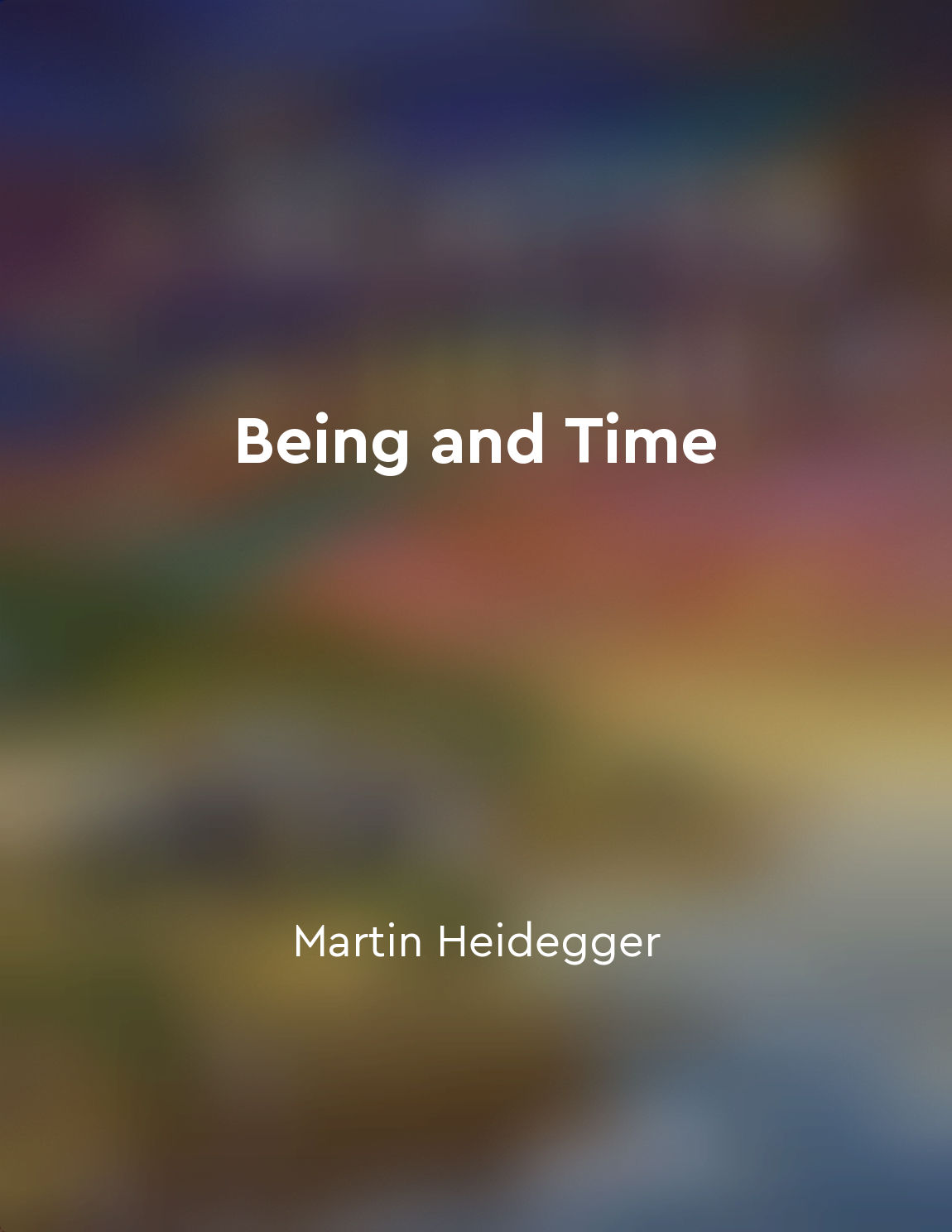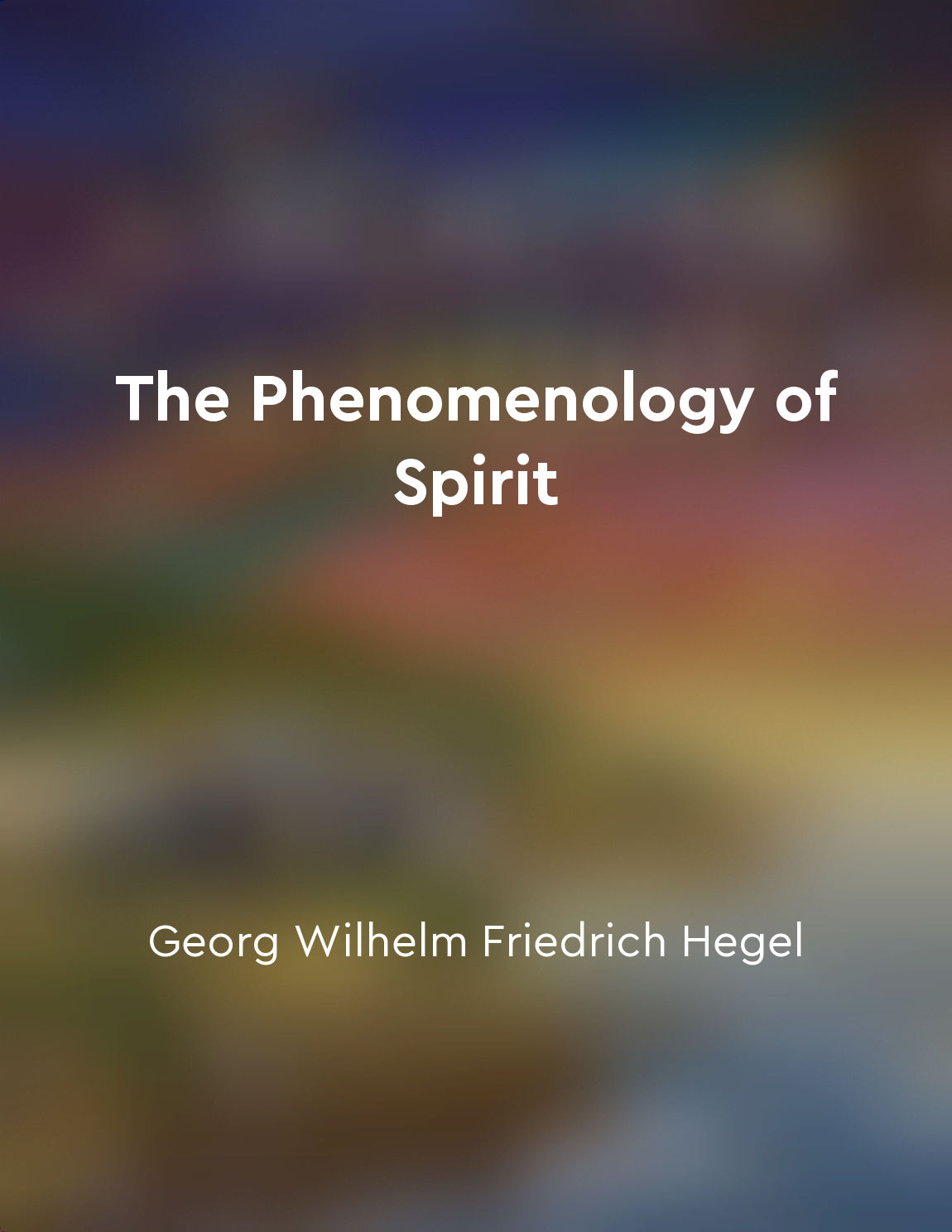Individuality and universality from "summary" of The Phenomenology of Spirit by Georg Wilhelm Friedrich Hegel
Individuality and universality are two essential aspects of human existence that are intricately intertwined in Hegel's philosophy. According to Hegel, individuality refers to the unique and particular characteristics that distinguish one person from another. It encompasses the personal experiences, thoughts, emotions, and actions that make each individual distinct and separate from others. On the other hand, universality refers to the shared and common aspects of human life that connect individuals to one another in a broader sense. It encompasses the universal principles, values, norms, and ideals that unite individuals as members of a collective whole. Hegel argues that individuality and universality are not mutually exclusive but rather complementary and interdependent. While each person is a unique and autonomous being with their own subjective perspective and identity, they are also inherently connected to others through their participation in the universal human experience. This duality of individuality and universality reflects the complex and dynamic nature of human existence, where individuals simultaneously assert their own selfhood while recognizing their intercon...Similar Posts
Embracing love means embracing our true selves
When we truly embrace love, we are able to fully embrace our true selves. Love is the essence of who we are, the core of our be...
Ancient Greek philosophers laid the foundations for Western thought
The ancient Greek philosophers were the first to systematically explore the nature of reality and the human condition. Thales, ...
Utility is standard of morality
The principle of utility is the foundation of the moral system known as Utilitarianism. According to this principle, actions ar...

Temporality shapes our understanding of self
The self is not a static entity that exists in isolation. Rather, it is a dynamic and evolving entity that is fundamentally int...
Government intervention
Government intervention is the interference of the state in the economy. It is the use of force to control the actions of indiv...
Creativity can be a source of solace
In desperate times, when the weight of the world feels like it's bearing down on you, there is solace to be found in the act of...
Our perception of time is subjective and malleable
Time, as we experience it, is a peculiar thing. It seems to flow at a steady and predictable pace, marching forward in a linear...
Practice gratitude daily
Gratitude is a powerful tool that can transform your life in amazing ways. It is a simple practice that can bring immense joy a...
Engaging in conversations about race can be uncomfortable but necessary
Conversations about race can be tough. They can make us squirm in our seats, our hearts race, our palms sweat. But they are als...
Fear separates us, while love unites us
Fear is the great divider. It is the force that keeps us separate from each other, locked in our own individual prisons of anxi...

